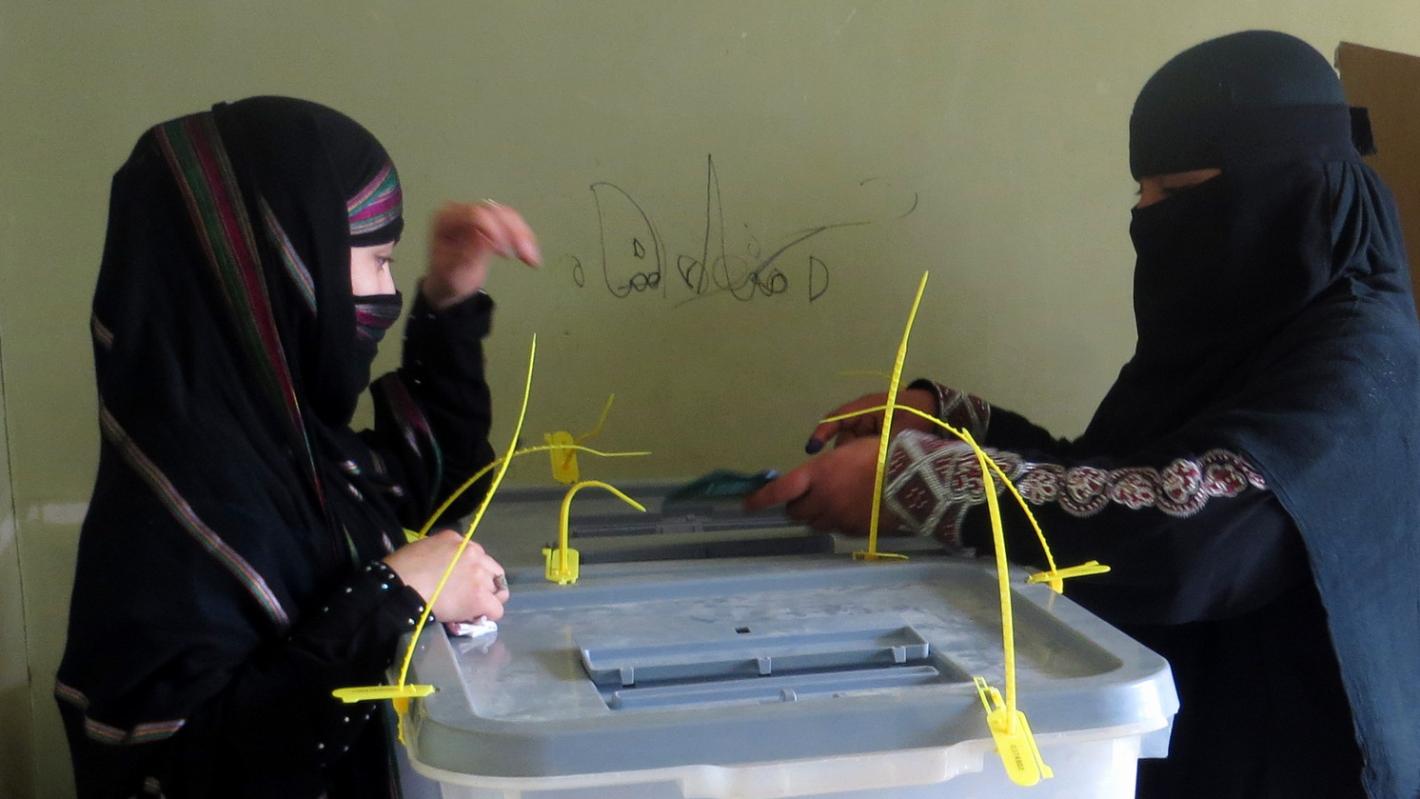JALALABAD - As voters, candidates and electoral officials, women’s participation in the upcoming elections is a crucial component for strengthening Afghanistan’s democracy, said panelists in a UN-backed radio programme in Jalalabad, the capital of Nangarhar province.
Featuring panelists from the Independent Election Commission (IEC), civil society and academia, the live discussion focused on measures to increase women’s participation in public life and, specifically, the upcoming elections slated for October 2018.
“We are doing our best to provide necessary facilities for women to participate in the upcoming parliamentary and district council elections,” said Hamza, a Nangarhar-based IEC official who added that the Commission will employ female electoral staff at every polling centre in a bid to improve women’s participation during the elections.
Other panelists expressed optimism about the number of women turning out to vote in October would be higher than the 2014 election, where 38 per cent of voters were women. “There is a growing level of awareness among women about the significance of the elections and their role in them,” said Kawsar Armani, a civil society activist.
Many factors continue to undermine women’s participation in elections, including the general security situation along with the long distances they must travel to polling centers, particularly in rural areas. While the Afghan government has taken steps to protect and improve women’s participation in public processes through legislation, the situation remains unchanged for many women of the country, including the women of eastern provinces, where harmful traditional practices are still prevalent.
The United Nations maintains that women’s full participation – as candidates, electoral workers and voters – is a fundamental right, and that enhancing women’s participation in all stages of the electoral process is vital for strengthening democracy.
Supported by UNAMA’s Jalalabad regional office, the radio programme was produced by local media partner Safa Radio and broadcast to an audience estimated at 500,000 as part of a country-wide outreach initiative aimed at creating platforms for local communities to engage in dialogue on key issues.
UNAMA supports the Afghan people and government to achieve peace and stability. In accordance with its mandate as a political mission, UNAMA backs conflict prevention and resolution, promoting inclusion and social cohesion, as well as strengthening regional cooperation. The Mission supports effective governance, promoting national ownership and accountable institutions that are built on respect for human rights.
UNAMA provides 'good offices' and other key services, including diplomatic steps that draw on the organization’s independence, impartiality and integrity to prevent disputes from arising, escalating or spreading. The Mission coordinates international support for Afghan development and humanitarian priorities.






